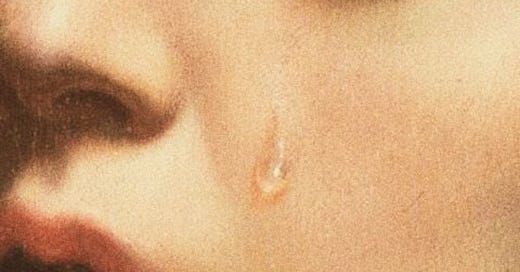REVIEW: Franz Marc’s Blue Horses by Mary Oliver
Former (blue) horse girl reporting live from the frontlines
I’m not a massive poem girl. It’s one of those things that — like drinking tea — I’ve always felt I should be more into than I am. But even though a lot of tea just tastes like hot water in retrograde and a lot of poetry fills me with the urge to bury my english degree, I’ve managed to build up a personal library of poets whose works I genuinely love, and top of the list is Mary Oliver (yes I’m an eight year old girl in my mid-twenties who has a habit of personifying the moon, how did you know). So, while I could rave at length about any number of her poems (and hope you’re all out here letting the soft animal of your body love what/ it loves and remembering that it is a serious thing/ just to be alive/ on this fresh morning/ in the broken world), today I’m going to be monologing about Franz Marc’s Blue Horses, based on the series of paintings by Franz Marc.
Every generation has found their own fictional gateways into another world - my friends and I grew up checking wardrobes for passages into Narnia - and it’s through this lens that I love to interpret the poem’s opening: I step into the painting of the four blue horses./I’m not even surprised I can do this. Oliver is leaving the real world behind to step into another artist’s work, and the discussion of this work frames the overarching idea of the poem dealing with the shock of war versus the innocence and beauty of the blue horses. She begins by establishing an exquisitely surreal context of the narrator ‘commingling’ with the blue horses of Franz Marc’s titular painting. It’s a peaceful juxtaposition of the remarkable and the mundane, which is abruptly shattered when the narrator reminds us that Franz Marc died a young man, shrapnel in his brain. The change is jarring, demanding that the reader conflate the beauty and magic of the artist’s work with the brutal reality of how he was killed; another juxtaposition, this time harsh and unsettling. The contrast is brought home in the following line — the line which demolishes my itty bitty heart every time I read it and was the entire reason I chose this poem:
I would rather die than try to explain to the blue horses
what war is.
The instant, painful confession that articulates the animal and artistic innocence of the blue horses, as opposed to the guilty knowledge of the humans involved - the narrator, the artist, the author. Even the reader becomes culpable in this moment, and from here on we are an accomplice in protecting the innocence of the blue horses.
Finally, the third ‘act’ of the poem, in which the narrator brings us back to the blue horses, and I’m obsessed with the final line of the poem:
I don’t expect them to speak and they don’t.
If being so beautiful isn’t enough, what
could they possibly say?
I initially wasn’t sure what to make of this line, but the interpretation I settled on was that the line is both 1) a reminder of the peace and beauty associated with the painting, and 2) a rearticulation of the shock and horror of war in the eyes of the blue horses. What could they possibly say, knowing what we’ve done?
Makes me sad. Love it. Mary Oliver can do no wrong.
B.
Continue Reading:







